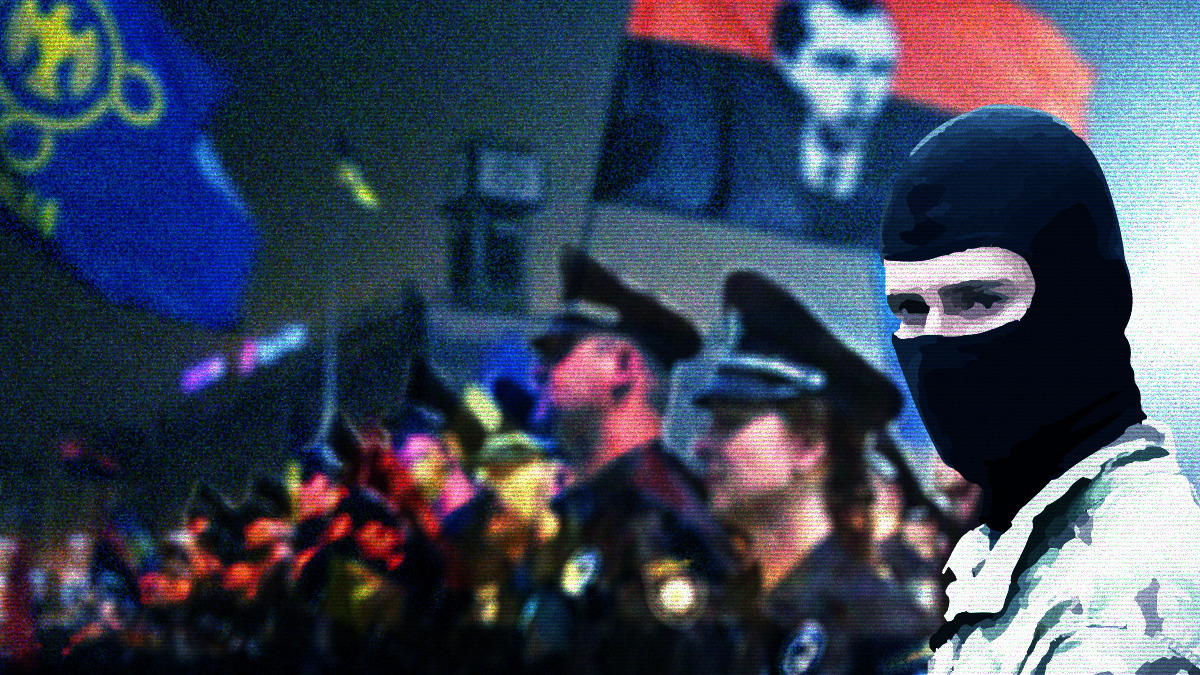The Ukrainian Jewish Committee has accused Canada and other members of the international community of being silent on anti-Semitism in Ukraine after a Canadian-trained police force demanded a list of Jews in the Kolomiya region.
Earlier this week, Ukrainian Jewish Committee Director-General Eduard Dolinsky shared a document from Ukraine’s National Police which demanded addresses and mobile numbers of Jewish community members, purportedly as part of an effort to combat “organized crime.”
“Please provide us the following information regarding the Orthodox Jewish religious community of Kolomyya, namely: The organization’s charter; list of members of the Jewish religious community, with indication of data, mobile phones and their places of residence,” said the translated letter signed by high-ranking NPU officer Myhaylo Bank.
The letter was sent to the leader of Kolomiya’s Orthodox Jewish community in February 2020.
Since the incident took place, the NPU has launched an “unprecedented” internal investigation into the matter – a move Dolinsky suggested was unexpected.
“This is the first and unprecedented case,” he said. “Usually, when we filed to police about antisemitic cases we [are] denied justice.”
In conversation with True North, Dolinsky accused Canada of ignoring the issue of the glorification of Nazi collaborators in Ukraine.
“Canada and other Western partners were silent and continue to be silent on anti-Semitism and other issues, including the glorification of Nazi collaborators in Ukraine,” said Dolinsky.
Dolinsky also said that Canada’s silence on the issue could stem from a desire to not “criticize Ukraine when she is fighting Russian aggression.”
According to the RCMP, 25 Canadian police officers are working with Ukrainian police, some of whom are deployed in the country directly to provide training and mentoring.
“The Canadian Police Mission in Ukraine, a bilateral engagement, supports Ukraine’s police reform by building the capacity, effectiveness and sustainability of Ukraine’s police services including developing specialized areas of expertise,” RCMP spokesperson Catherine Fortin told True North.
When pressed on whether the RCMP was aware of reports of Nazi sympathies and antisemitism among the NPU, and whether Canada’s national police condemns these worrying behaviours, Fortin reiterated the mission’s goal to increase awareness of human rights in Ukraine.
“This bilateral engagement also includes increasing awareness of gender and human rights considerations. Through deployments to the European Union Advisory Mission for Civilian Security Sector Reform, Canadian police provide strategic advice for the development of effective, sustainable, and accountable security services to help strengthen the rule of law in Ukraine,” said Fortin.
The NPU was established in 2015 to replace the country’s former police force which was under the control of former Ukrainian President Viktor Yanukovych who was evicted from the nation after the 2014 Ukrainian revolution.
By 2016, the Liberal government had spent millions to launch the police agency and has been sending RCMP officers to train local forces ever since.
Canada’s original policing mission to Ukraine entitled Supporting Police Training in Ukraine (SPTU) allegedly involved deploying RCMP to increase “gender and human rights considerations” among the NPU.
Despite the Canadian mission’s stated gender and human rights considerations, Dolinsky blames “ignorance, prejudices and lack of training” for the incident.
Over the years, the NPU has been accused of harbouring anti-Semitism.
In 2019, NPU officers and high-ranking state officials took to social media to declare that they were “Banderites” or supporters of Stephen Bandera a WWII Nazi collaborator responsible for the massacre of Jews and Poles in the region.
“I apologize. I am a Banderite, too! Glory to Ukraine!” wrote the former Chief of Ukraine’s National Police Serhiy Knyazev.
Knyazev was joined by Interior Minister and National Police spokesperson Artem Shevchenko and Interior Ministry adviser Zoryan Shkyryak.
Global Affairs Canada did not respond to a request for comment on the matter.
